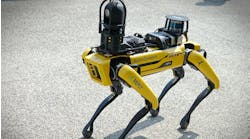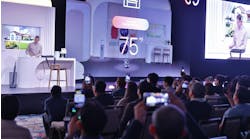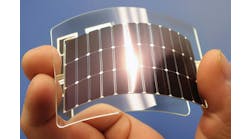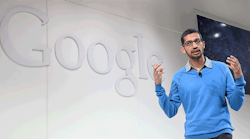"Looking to the future, the next big step will be for the very concept of the 'device' to fade away," Google Chief Executive Officer Sundar Pichai wrote Thursday in a letter to shareholders of parent Alphabet Inc. "Over time, the computer itself—whatever its form factor—will be an intelligent assistant helping you through your day."
Instead of online information and activity happening mostly on the rectangular touch screens of smartphones, Pichai sees artificial intelligence powering increasingly formless computers.
"We will move from mobile first to an AI first world," he said.
Pichai was, in part, talking his own playbook because Google has been working on AI and related technology such as machine learning for years and this advanced software already powers web services and apps such as Google Photos and Google Translate.
Google is also a major investor in Magic Leap, a startup that has raised more than $1 billion to build an augmented-reality system that inserts 3D moving images and other information into the surroundings people see.
Pichai is on the board.
Magic Leap has been coy about the physical form its technology will take. When asked last year whether it will be a head-worn device near the eyes, Rony Abovitz, the company's CEO, said he saw computing as being a kind of presence all around humans in the future.
Pichai has risen to the top role at Google in recent years, taking over from co-founders Larry Page and Sergey Brin, so his views shape the strategic direction of the Internet search giant.
Indeed, he expounded on the future of computing in a Google founders' letter that has been only written by either Page or Brin for over a decade.
Still, Google has a history of grand pronouncements about the future of computing that don't pan out, at least initially.
In 2013, Brin touted the benefits of Google Glass, the company's connected eye wear, saying that summoning information to one's eyes was a better use of the body than "rubbing a featureless piece of glass."
Glass flopped because of privacy concerns and technical problems like short battery life.










